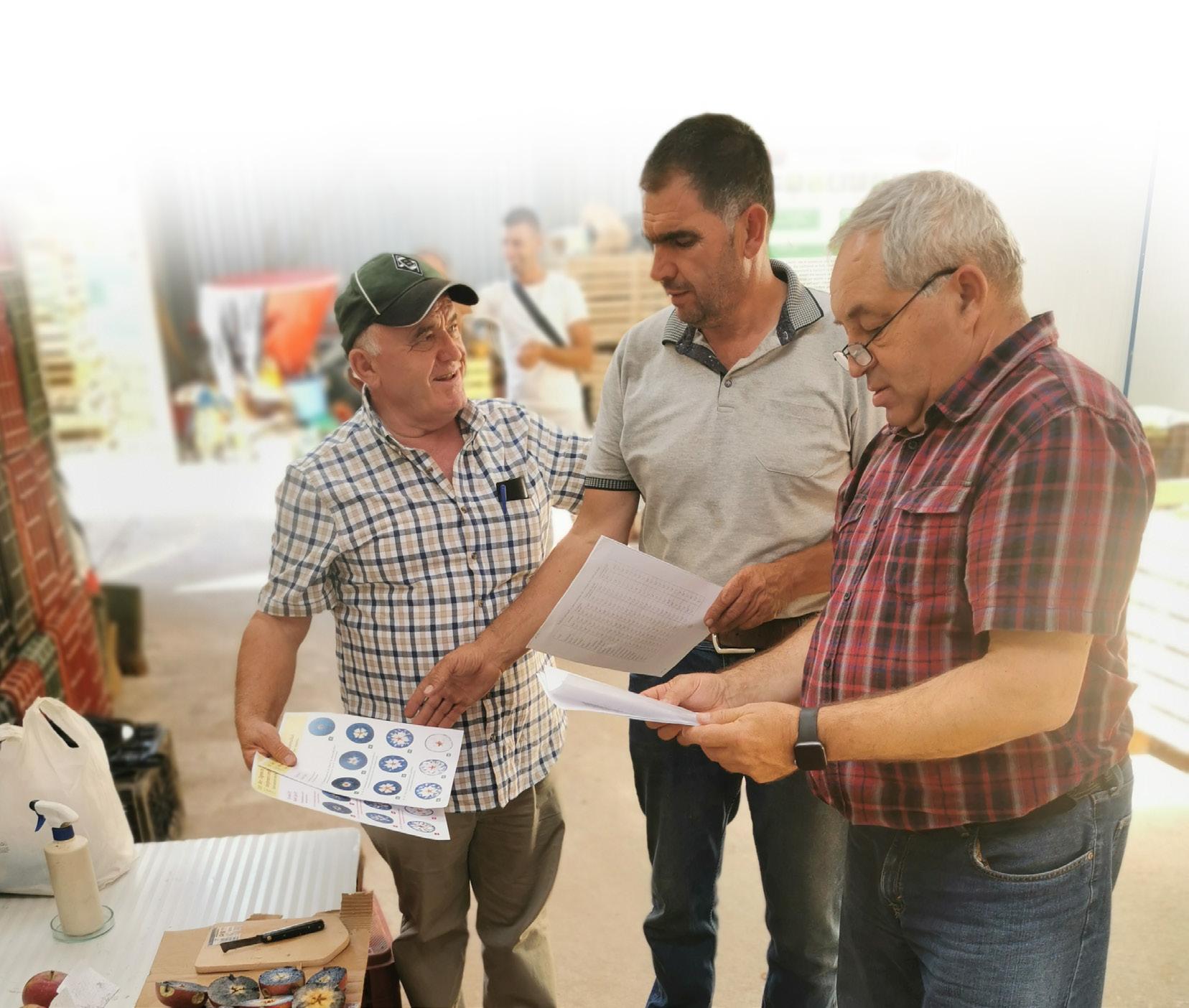
2 minute read
CLIMATE RISK INSURANCE IN MADAGASCAR
In Southern Madagascar AFC supports smallholder farmers in adapting agricultural value chains to climate change by introducing climate risk insurance.
Over the past years, climate change has hit Madagascar and its population harder and harder, especially the Southern regions, where long periods of drought alternate with heavy flooding. Lack of suitable infrastructure and poor economic conditions currently hamper the livelihood of the rural population, who struggles to cope with climatic events.
From 2018 to 2022, we implemented the “Adaptation of agriculture value chains to climate change project (PrAda)” in Madagascar, which is embedded in a larger GIZ programme. AFC introduced a climate risk insurance product and supported its operationalisation to protect smallholder farmers against climate and weather-related events. The project was co-financed by the European Union and executed via the Madagascan Ministry of Agriculture, Livestock and Fisheries (MINAE).
The core result of this first phase is an index-based insurance product targeting peanut producers cultivating in Anosy, Androy and Atsimo Atsinanana regions in Southern Madagascar. In assessing the potential of the insurance, our team of local and international experts analysed the current socio-economic and agricultural conditions of peanut production in the three regions. We conducted focus group discussions and interviews with peanut producers and other actors along the value chain – in concertation with GIZ for advocacy activities at national level including the counterparts, i.e. the MINAE and the Ministry of Finance. The peanut value chain has been identified as the one with most potential for a climate risk insurance product in the target regions. The national insurance company ARO is our technical partner. As one of few experienced local insurers, they had applied and subsequently been selected to be the projects’ partner insurance company.
The local partner organisation is the General Meteorological Direction responsible of publishing weather forecasts. Working together with national institutions ensures sustainability of our actions and enables them to establish ownership of processes and procedures.
Three years after its launch, around 450 smallholder farmers insured their peanut fields against droughts. They are holding insurance policies from ARO – from whom they are reimbursed if the index is triggered. Farmers can buy policies in their villages, at the marketing and information campaigns organised by ARO. Payout is made if the rainfall is below the threshold as per index calculated and based on satellite data amongst others. Climate insurance is one way to mitigate economic risks, and nowadays it has become easier to predict climate events because of existing early warning systems and accessible satellite data. Nevertheless, heavy rainfalls are still unpredictable where they will actually happen. This is why the product focusses on droughts as a recurring phenomenon affecting many farmers at the same time.
Furthermore, AFC developed training materials on financial education and trained farmers and their families: being able to manage the household’s economy – including business and family resources – increases the ability to cope with sudden shocks.

The first phase ended in November 2022. AFC was awarded to implement the second phase of the project up to June 2025. In addition to further developing the insurance product, the second phase foresees to formulate other tailored financial services such as credit and savings that will strengthen the resilience of smallholder farmers in selected agriculture value chains in the three Southern regions. Our technical partner continues to be the national insurance company ARO, with whom we will finetune technical features of the insurance.
For further information, please contact:










